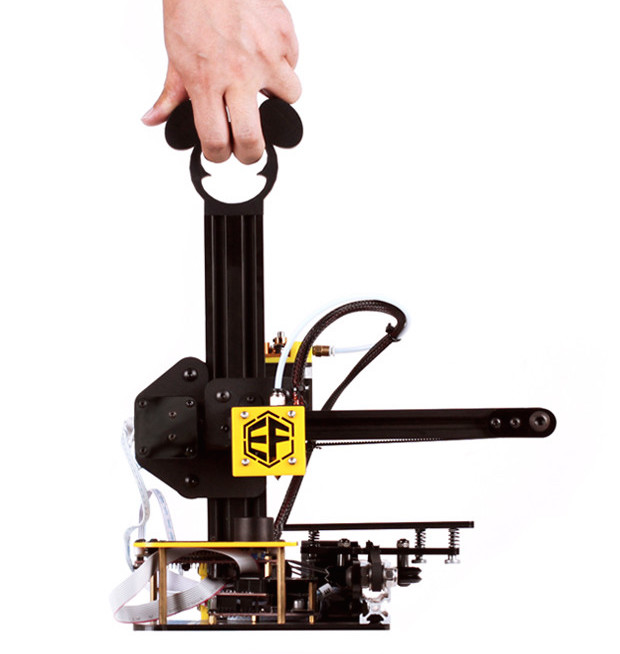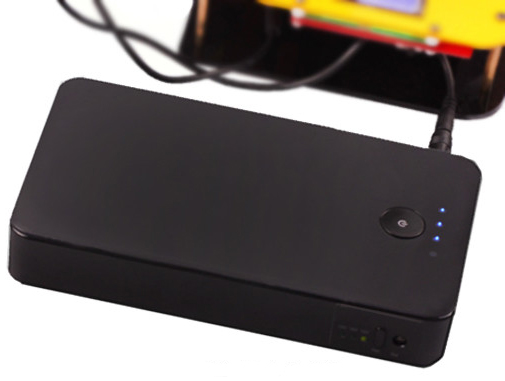A supremely portable and inexpensive 3D printer has launched: Freaks3D.
This machine has a focus like no other: portability. It is lighter, simpler and comes with a ridiculously low price.
Let’s look at the machine specifications first.
Freaks3D is a plastic extrusion machine, as that is the least expensive – and probably most portable – technology available for 3D printing today. The build volume is not large at 130 x 150 x 100mm, but that’s a compromise you might expect on a portable 3D printer.
There’s no heated bed, presumably to save weight and cost, meaning Freaks3D can print only 1.75mm PLA and TPU (thermoplastic urethane) filaments, which are both quite useful. Layer resolution is as small as 0.10mm, which is standard among 3D printers these days.
Structurally, Freaks3D is an open design, again to save weight. Sturdy aluminum beams and acrylic panels make up the limited structure, but should be sufficiently robust to produce good quality prints. The machine weighs 2.954 kg (6.5 lbs), so it is easily liftable by its top handle, a feature not often found on 3D printers. The machine’s exterior dimensions are 360 x 300 x 160mm, so it should be possible to place Freaks3D in a small case for traveling.
The machine’s big feature is its power system. There’s two parts: a standard 12V 8Amp power adaptor for fixed operation, and a 12V 5Amp “power bank”, into which you can install a battery for truly portable operation. You could, theoretically, take this 3D printer with you on a camping trip to print any broken plastic items.
As of now you can purchase a Freaks3D kit for only USD$299, a tremendously low price. For an assembled version, you’ll pay USD$399. It seems the company is also seeking worldwide distributors for the device, as they also offer volume discount options.
Will this 3D printer survive? We would exercise caution here. There are a couple of concerns.
While the project appears successful, having sold over 250 units in only a couple of days, blasting past their modest funding goal of USD$20,000 by a factor of five, further success could bog them down in the logistics of supplying a large number of customers as has been the experience of previous low-cost units. It may be their low unit cost is too low for them to survive unless they’ve very carefully planned out their logistics and supply chain.
On the other hand, this portable machine is relatively simple compared to more expensive units, so it is possible they’ve got it figured out. This could be the case, as the machine is sourced from Shenzhen, China, where many inexpensive manufacturers exist.
Via Indiegogo and ElecFreaks



